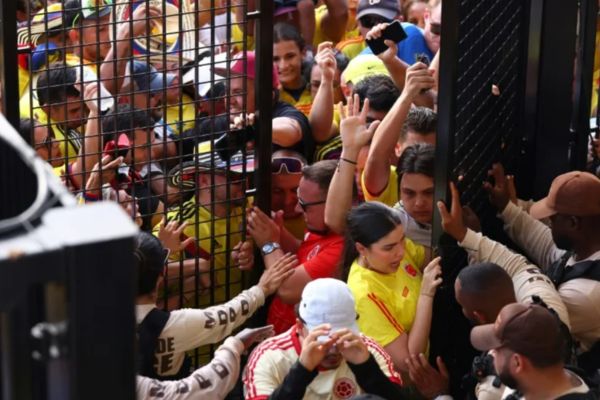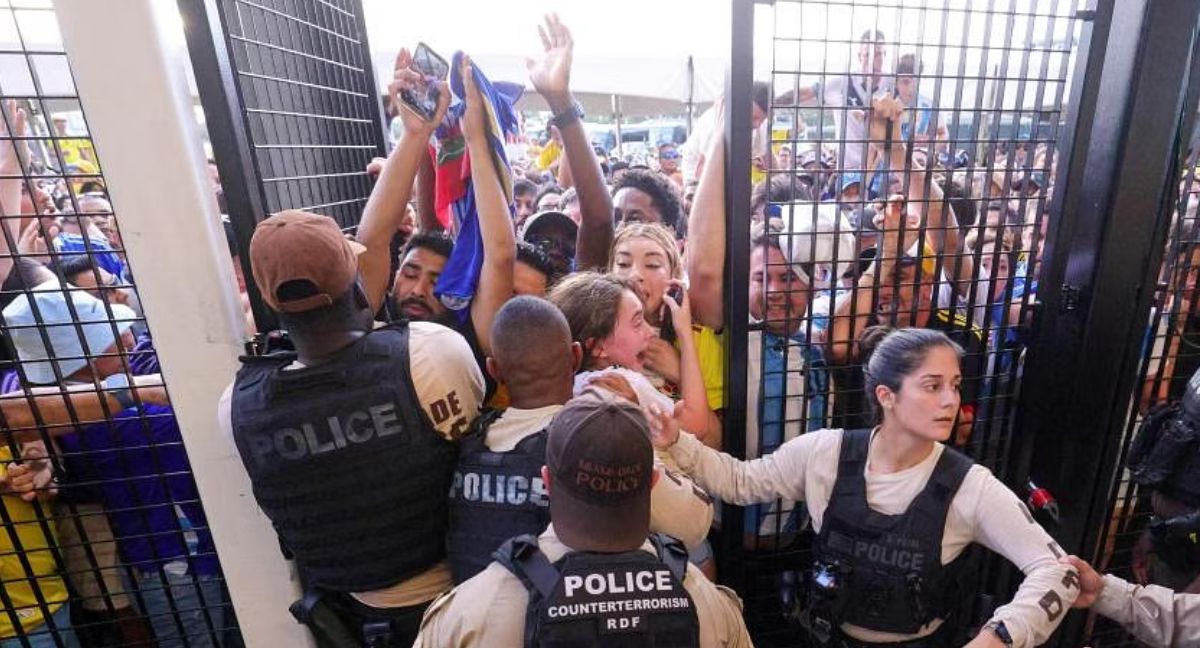The recent Copa America final in Miami ended in a chaotic spectacle, raising serious concerns about the preparedness of North American stadiums for the 2026 World Cup. The 82-minute delay, caused by overwhelmed security struggling to process fans, was just the tip of the iceberg, exposing a series of organizational and security failures that could have dire consequences for the upcoming global tournament.
Security Failures at the Copa America Final
A security debacle overshadowed the final on July 14th in Miami’s Hard Rock Stadium between Colombia and Argentina. The crush stranded fans outside the venue for over an hour, with many suffering from heat exhaustion. Organizers blamed ticketless fans for rushing entry points, but the sheer scale of the problem pointed to a security system ill-equipped to handle the influx.
The situation was exacerbated by a lack of clear communication and organization. Fans were left confused and frustrated, with no clear information about what was happening or when they could enter the stadium. This chaotic scene played out against the backdrop of a sold-out crowd, with many paying exorbitant prices for tickets.
Hard Rock Stadium, which will host seven games in the 2026 World Cup, is now under scrutiny for its ability to manage large crowds safely and efficiently.

Concerns for the 2026 World Cup
The turmoil surrounding the Copa America has reverberated throughout the soccer community, sparking serious doubts about North America’s preparedness to host the 2026 World Cup. Alexi Lalas, a former US national team player, and well-known TV analyst, voiced his apprehension, saying, Conmebol is not presenting itself well, and given that this is happening under our oversight, in our country, it doesn’t bode well for the US less than two years away from the World Cup.
Fifa, the global governing body of football, has remained relatively silent on the incident. However, sources indicate that they will be intensifying discussions with stadiums regarding their security plans and protocols.
Stadium Employee Perspective
A former stadium employee, speaking on condition of anonymity, painted a damning picture of the security failures. “I know this facility like the back of my hand; this should never happen,” he said, after spending over two hours trapped in the crush outside the stadium.
He expressed disapproval of the inadequate perimeter control and ticket checks, stating that setting up a perimeter and conducting weapon and ticket checks outside, rather than funneling in thousands of people through a gate, would address concerns about weapons and the safety of women and children passing out while trying to enter the stadium, especially when ticket prices are as high as US$2,000.
He called the incident an “embarrassment” for Conmebol, Hard Rock Stadium, and everyone involved.
Other Copa America Incidents
The security issues at the final were not isolated incidents. The July 10th semi-final between Colombia and Uruguay in Charlotte also ended in ugly scenes, with Uruguayan players climbing into the stands and clashing with Colombian fans. The players claimed that their family members had been threatened in the unsegregated stands.
These incidents highlight a broader issue: the lack of experience and preparedness of local security and police forces in dealing with the unique challenges of managing large crowds of passionate football fans.
Challenges for the 2026 World Cup
The 2026 World Cup will be a massive undertaking, with 48 teams competing across 16 venues in the US, Canada, and Mexico. The success of the tournament will depend on a number of factors, including the ability to manage large crowds safely and efficiently, provide adequate security, and ensure a smooth and enjoyable experience for fans.
The Copa America has exposed some potential vulnerabilities. All World Cup stadiums are NFL venues, raising concerns about their suitability for soccer. Several coaches, including Argentina’s Lionel Scaloni, also criticized the quality of the grass surfaces used during the Copa America. Fifa has promised to address these issues, but the time for action is now.
FIFA’s Experience and Expectations
The Copa America faced substantial difficulties, but there is optimism that Fifa will use these experiences to improve the organization of the 2026 World Cup. Jesse Marsch, who coaches Canada’s national team, thinks that the problems in the Copa America stemmed from Conmebol’s lack of familiarity with the US market.
They underestimated the task of relocating all their staff from South America and smoothly running a tournament in a new country. According to him, this was a huge error on their part.
Marsch expressed confidence in Fifa’s ability to deliver a successful tournament, stating, that Fifa’s overall experience for running tournaments, I think, is at a much different level.
The 2026 World Cup is a monumental event that has the potential to showcase the best of North American football. However, organizers must heed the lessons learned from the Copa America chaos to ensure that the tournament is a success. The time for action is immediate as the clock continues to tick.
Holabet News is your trusted online betting site in Singapore. Your winning journey starts here!





